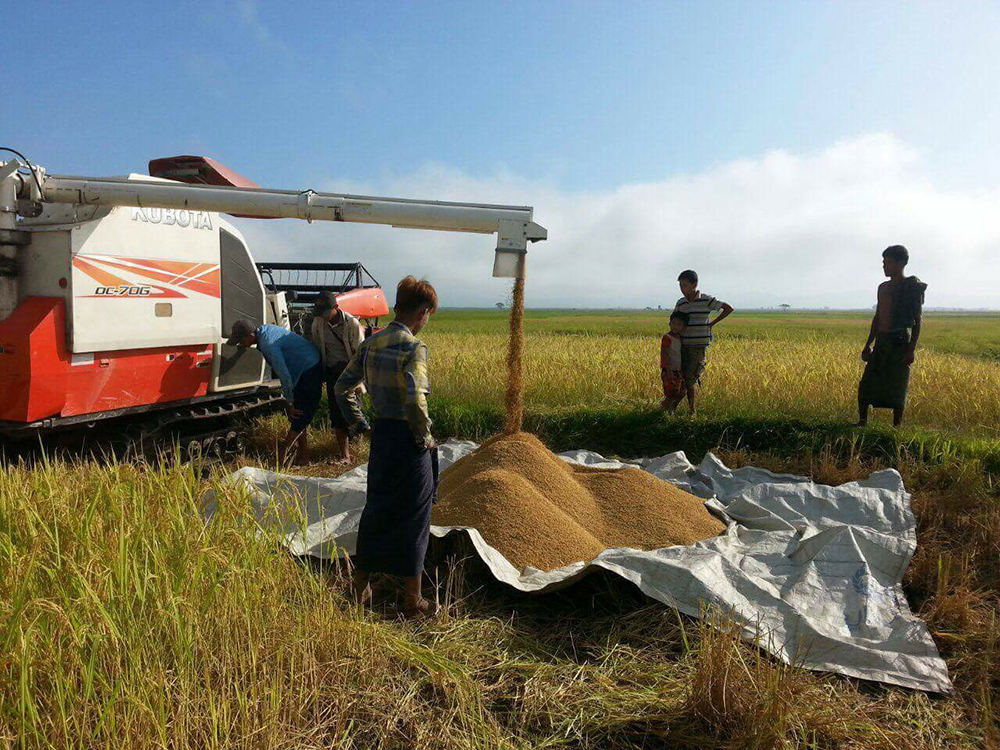CNI News
29 Jan 2023
Low quality paddy prices in Myanmar have more significantly risen recently than during the harvest, hitting MMK 1.6 million per 100 baskets.
Myanmar has faced poor harvests thie year due to the decrease in cultivation acreage and damage of crops caused by weather conditions, according to farmers.
Prices of low quality paddy have risen to MMK 1.6 million per 100 baskets while that of high quality paddy has increased to as much as MMK 2 million per 100 baskets, Chairman U Thein Aung of Farmers Development Association told the CNI.
Paddy farmers. (GETTY IMAGES)
He told the CNI, "During the harvest, the prices of low quality paddy like Thukah and Pakham varieties, which are mainly consumed by the grassroots, rose to MMK 1 million per 100 baskets. Now, the prices of the Thukha variety have risen to MMK 1.4 million per 100 baskets. The prices of such rice varieties have also risen to as much as MMK 50,000 per bag. The prices of Pawhsan variety paddy have also increased from MMK 1.6 per 100 baskets during the harvest to MMK 2 million per 100 baskets recently. As the harvest was poor, merchants who have signed export contracts have to buy as much paddy as they can at higher prices to meet the demand. They have to take paddy yields, export demand and domestic consumption into consideration and have to buy paddy at higher prices because if they refused to do so, no one would sell paddy to them."
While paddy prices have risen, farmers had incurred higher input costs during the cultivation season. Input costs rose four-fold during the cultivation.
At the same time, labour and transportation costs were higher than the previous year and farmers are not as profitable as they should.
A heap of paddy. (AFP)
As input costs were very high, they were not able to use enough fertilizers, pesticides, weedkillers and supplements and per-acre-yields have dropped by 50 percent.
Paddy prices have increased in Shwebo, where paddy cultivation dropped by two-thirds, but millers cannot go to buy paddy from farmers due to regional instability and farmers have to go and sell paddy to mills when the situation is stable, according to millers.
As paddy prices have risen in Shwebo, merchants and brokers have stopped buying paddy because of high prices but they still remain at their highest, according to a rice miller in Shwebo.
Farmers. (GETTY IMAGES)
He said, "It is difficult to go to villages to buy paddy at present. When the security situation is stable for two or three days, farmers come to us to sell their paddy. Merchants from towns dare not go to villages to buy paddy because they do not know the security situation on the ground. Farmers come to us to sell paddy when there are no military operations. The prices of Shwebo Pawhsan have hit MMK 2 million per 100 baskets. As the prices are high, merchants and brokers have stopped buying. Paddy prices at this level are not profitable for millers. So, no one buys paddy in large volumes. Paddy prices have stagnated at a higher level."
As China-Myanmar border gates have been reopened, rice demands in Muse are increasing.
As rice is also exported from the maritime trade while the harvest was poor, some people are worried about rice sufficiency and are storing rice. As a result, rice prices have risen, according to economic observers.
Although rising paddy prices are profitable for farmers and merchants, the public is worried about rising rice prices.
-




